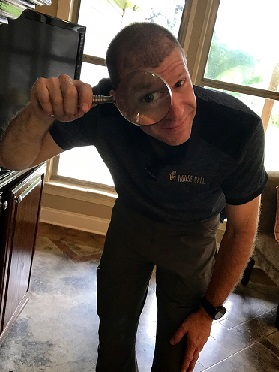When starting a new business, you’ve got plenty of things to worry about. There are lots of technical details to work out, from getting your tax id number to starting a bank account. But, often the most difficult thing to tackle is how to actually get the creative part going. Figuring out what you’re going to do, how you’re going to do it, and how to best let everybody else know that you’re the one that’s doing it. And if you haven’t been gifted with the most imaginative mind, the technical aspect can seem like child’s play compared to the creative part.

What should I do first? Should I do a deep dive into my new field, garnering all the education I can find? Do I look to make contact with others that are in my industry, trying to make those connections that can help me in the long run? Do I look for mentors, to help guide me along my chosen path? Or do I just jump in with both feet, exposing myself to this new industry, sink or swim style? What’s the best way to position myself, to help better my chances of future success?
Starting out in a new industry is certain to present us with lots of questions. The sheer number of things that must get done can easily exhaust us, causing us to stress out, and we end up get little to nothing done. It can be helpful to try to combine all our various questions into one or two major issues, to help lessen the feeling of being overwhelmed.
When starting out, it’s best to concentrate on the big items in your creative to-do list that can have a lasting effect on your success. First, we must figure out how to get better at our new job. How do we gain the skills we need as quickly as possible to scale our business? Secondly, how do we let our potential client base know that we’ve gained these skills? We need to figure out the best method to establish a reputation as the go-to person in our new industry.
Obviously, we need to know how to do our job, or none of that other stuff matters. So yes, we need to educate ourselves. Depending on our chosen industry, there will probably be some type of training to endure in order to get a piece of paper that allows us to legally practice in our new field.
After that, and probably just as (if not more) important is actually doing the job. Practicing our craft; gaining experience; honing our skill set so that we know what it is we’re doing. We must do our job as much as possible, even if it means doing it for free, in order to gain that experience. We may not be producing a perfect product; hell, we probably aren’t even producing an average product! But that’s OK; we learn by doing. And by doing with gusto, by practicing with intent, by going all-in on our new job, we’ll gain knowledge, we’ll gain experience, and eventually we’ll be producing a product that we can be proud of putting on the street.
The second thing we must do is to own our work. To put our name on it, even though we know it’s not where it should be, even though we’re really not proud of our product. Talk to any creative person, and they will undoubtedly tell you that they can’t stand to read/look at/listen to any of their early work. They’re embarrassed by it, because it’s not up to their standards. But that’s just it: they never would’ve achieved those standards if they hadn’t worked their way up to them.

No one starts out at the top. It takes practice, trial and error, getting your hands dirty, making mistakes and learning from them, in order to achieve success. Unfortunately, we all have an aversion to making mistakes. We plan, chart and outline everything in an attempt to keep from making mistakes, often to our own detriment. If all we do is plan, working towards that perfect product, we may never achieve even an imperfect product. We may never achieve anything.
Show up and do something. Put yourself out there in your world. Yes, you’re bound to make mistakes. Yes, you will probably fall on your face and embarrass yourself. But the simple fact that you’re trying will resonate. People will notice that you’re putting in the work, that you’re out there doing something, that you’re trying to get better, trying to make a difference. People will notice.
That’s really all you can ask for, isn’t it? For someone to notice and give you a chance. Once you get that chance, that’s when all that practice finally pays off. That’s when you’re actually doing your job, and doing it well.
The critical ingredient is getting off your butt and doing something. It’s as simple as that. A lot of people have ideas, but there are few who decide to do something about them now. Not tomorrow. Not next week. But today. The true entrepreneur is a doer, not a dreamer.
Nolan Bushnell
What did you do when you first started out? Were you an instant success, or did you have to take your lumps?
Please let us know what worked best to get you to your current level of success!
Please Share with Friends!
Thanks, Joe

